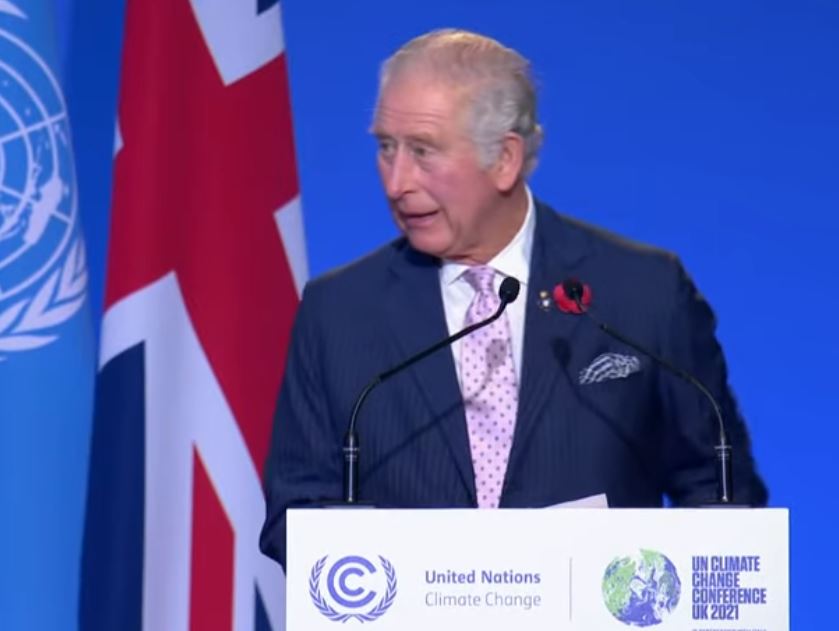
This Saturday’s coronation of King Charles III marks a significant moment in Britain’s history. No previous constitutional monarch has expressed his political views so openly. Unlike his mother and grandfather, whose opinions, if they had any, remained unknown to the general public, the king’s record-setting seventy years as heir apparent to the British throne saw him define himself as a deeply committed environmentalist.
In 2000, the BBC invited the then-Prince of Wales to give the last of the 2000 Millennium Reith lectures on sustainable development. Charles spoke of his belief in the “bounds of balance, order and harmony in the natural world which sets limits to our ambitions and define the parameters of sustainable development.” He name-checked the founders of the modern environmental movement—Rachel Carson and Fritz Schumacher, authors, respectively, of Silent Spring and Small is Beautiful. He embraced the precautionary principle, warning that the absence of hard scientific evidence of harmful consequences from genetically modified (GM) crops should not be taken as a green light to exceed nature’s limits.
Instead of looking to science for all the answers, mankind should work with the grain of nature, Charles argued. If a fraction of the investment going into GM technologies was devoted to improving traditional systems of agriculture, “the results would be remarkable,” he declared. He then praised fellow Reith lecturer Vandana Shiva, an environmental campaigner and director of the Research Foundation for Science, Technology and Ecology in New Delhi, for condemning large-scale commercial farming “so persuasively and so convincingly.”
Unfortunately for the people for Sri Lanka, Shiva also convinced the Sri Lankan government to ban GM crops and chemical fertilizers and switch to organic farming. The results were worse than remarkable; they were disastrous. According to Matt Ridley, within months of Sri Lanka going organic, “the volume of tea exports had halved, cutting foreign exchange earnings. Rice yields plummeted leading to an unprecedented requirement to import rice. With the government unable to service its debt, the currency collapsed.” Soon after, the government collapsed, too. Street protests forced President Gotabaya Rajapaksa to flee to the Maldives in an air force jet.
In a 2013 speech on protecting rainforests, the prince’s rhetoric became distinctly unroyal, accusing those who questioned the need to act as belonging to “the incorporated society of syndicated skeptics and the International Association of Corporate lobbyists.” This would have come as news to his father and sister. Asked in a 2020 interview whether she discussed farming with her brother, Princess Anne replied, “Yes … occasionally, but rather short,” adding “I don’t even go down the climate change route.”
According to the terms laid down by his son, Prince Philip would also be numbered among the syndicated skeptics and corporate lobbyists. In 2018, Philip wrote to Ian Plimer to congratulate him on his book The Climate Change Delusion. Prompted by Ridley’s 2016 Global Warming Policy Foundation lecture on how carbon dioxide emissions were greening the earth, Prince Philip had lunch in the House of Lords with Ridley and Nigel Lawson.
Father and son clashed on wind farms. In 2011, a wind farm developer reported that Prince Philip had told him that wind farms were “useless, completely reliant on subsidies, and an absolute disgrace.” In his movie “Harmony—A new way of looking at the world,” Charles speaks of wind energy “working with nature’s freely-given forms” and the need to “end our dependence on fossil fuels.” In the film’s opening sequence, showing a wind turbine in a meadow, Charles intones, “Time is running out.”
Indeed, time has run out for Charles’s forecasts of climate apocalypse. In March 2009, Charles warned that only 100 months remained to avert “irretrievable climate collapse.” That forecast expired in 2017, with no climate collapse. Subsequent dating of doom was pushed further out and became less precise. In 2015, the 100-month deadline was stretched to 35 years.
A 2021 paper on extreme climate forecasts tabulates 79 predictions of climate-caused catastrophe dating back to the first Earth Day in 1970. Charles has the distinction of being the only individual to be featured three times, with separate predictions of climate apocalypse. As the paper’s co-author David Rode of Carnegie Mellon University comments, alongside Stanford biologist Paul Ehrlich, Prince Charles has “warned repeatedly of ‘irretrievable ecosystem collapse’ if actions were not taken, repeated the prediction with a new definitive end date. Their predictions have repeatedly been apocalyptic and highly certain . . . and so far, they’ve also been wrong.”
Here’s hoping that the reign of King Charles will be a happier affair than his failed forecasts of climate doom. Long live the King.
This article originally appeared at Real Clear Energy
* This article was originally published here
PUBLISH WITH US!
The Washington Gazette works at our discretion with businesses, non-profits, and other organizations. We do not work with socialists, crony capitalists, or disinformation groups. Click the green button below to view our services!
HELP STOP THE SPREAD OF FAKE NEWS!
SHARE our articles and like our Facebook page and follow us on Twitter!





0 Comments